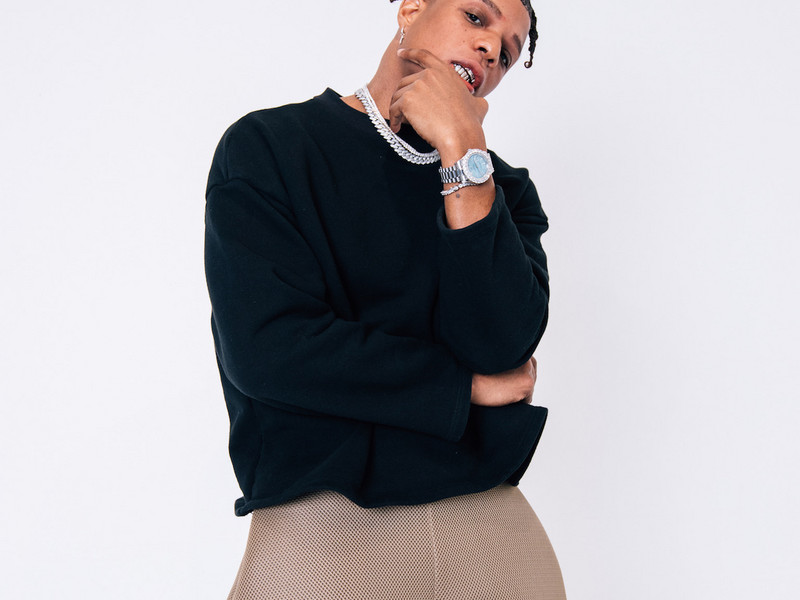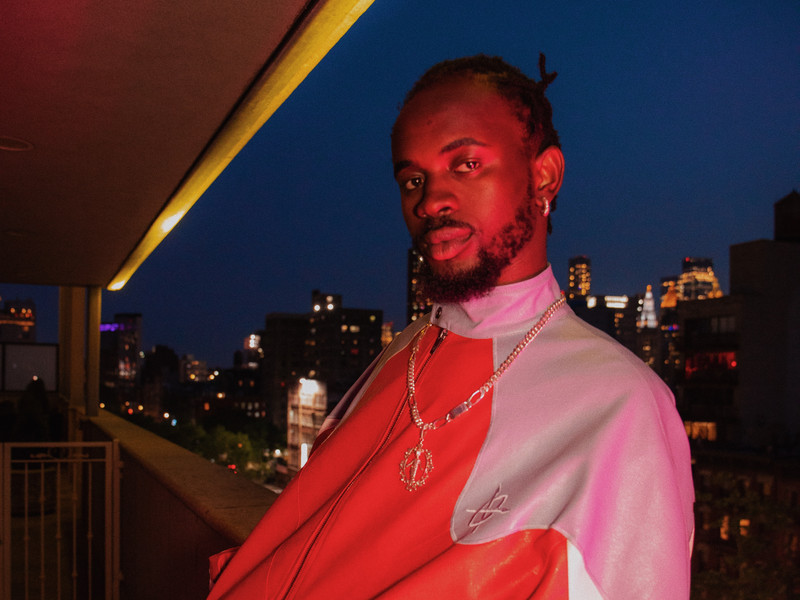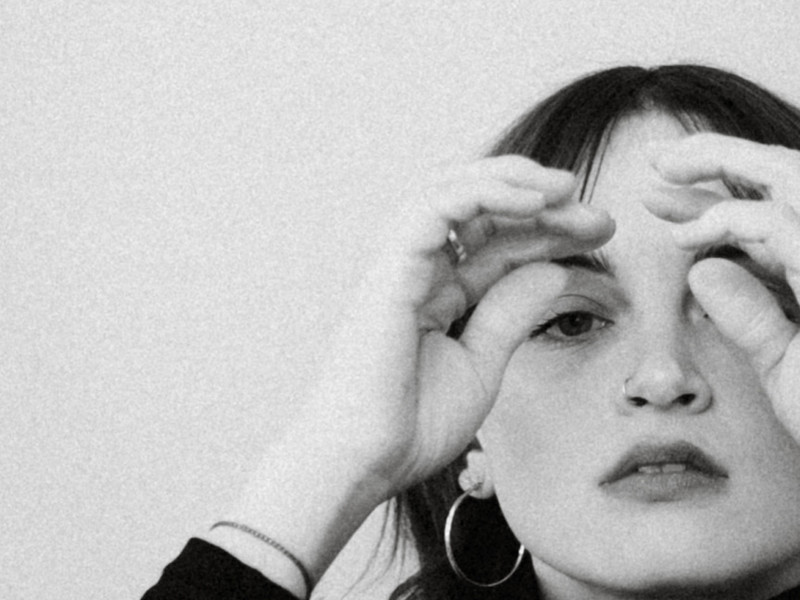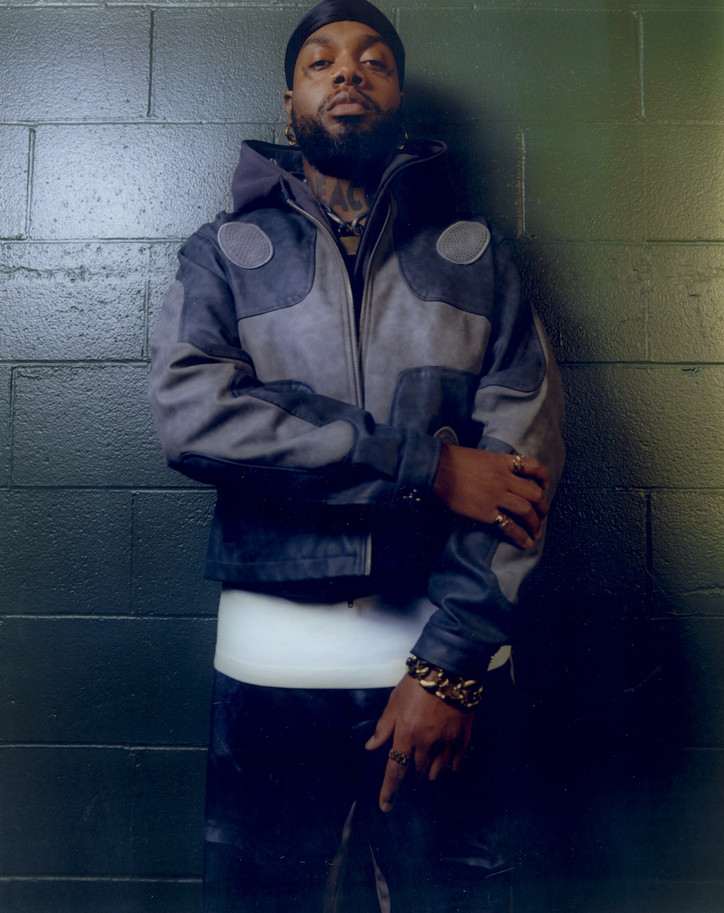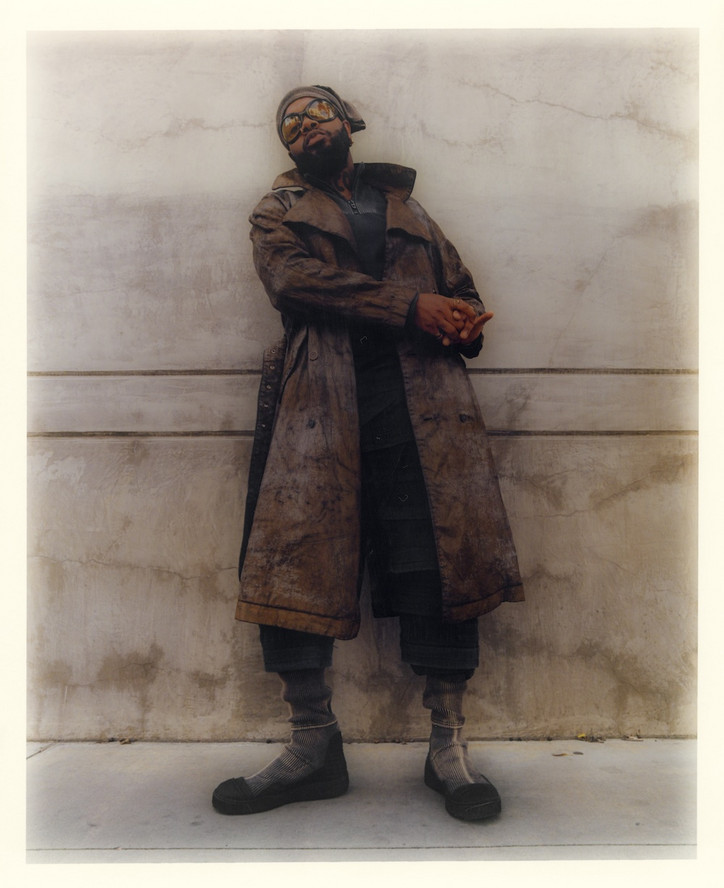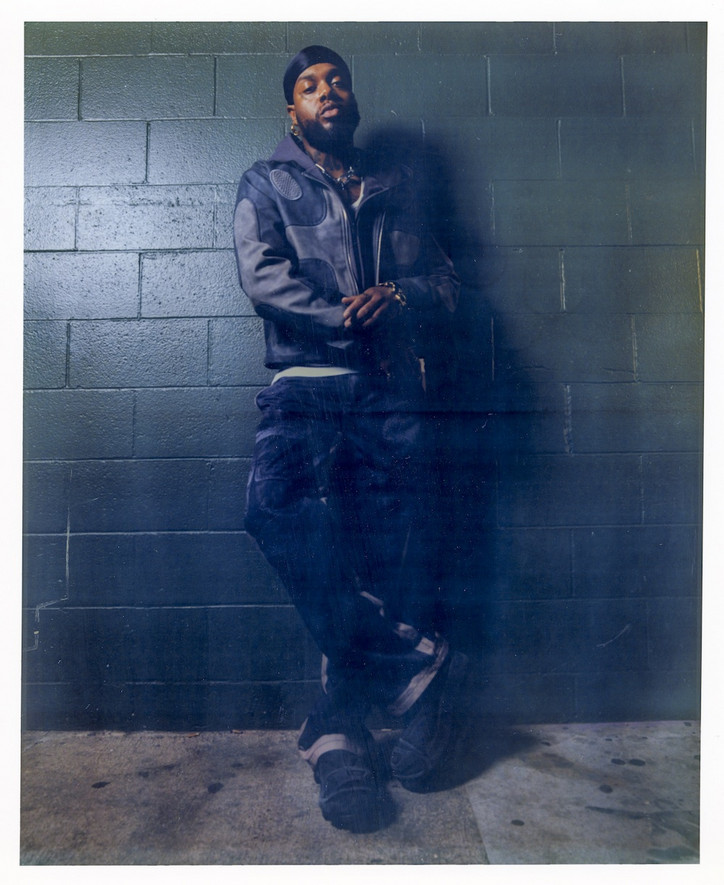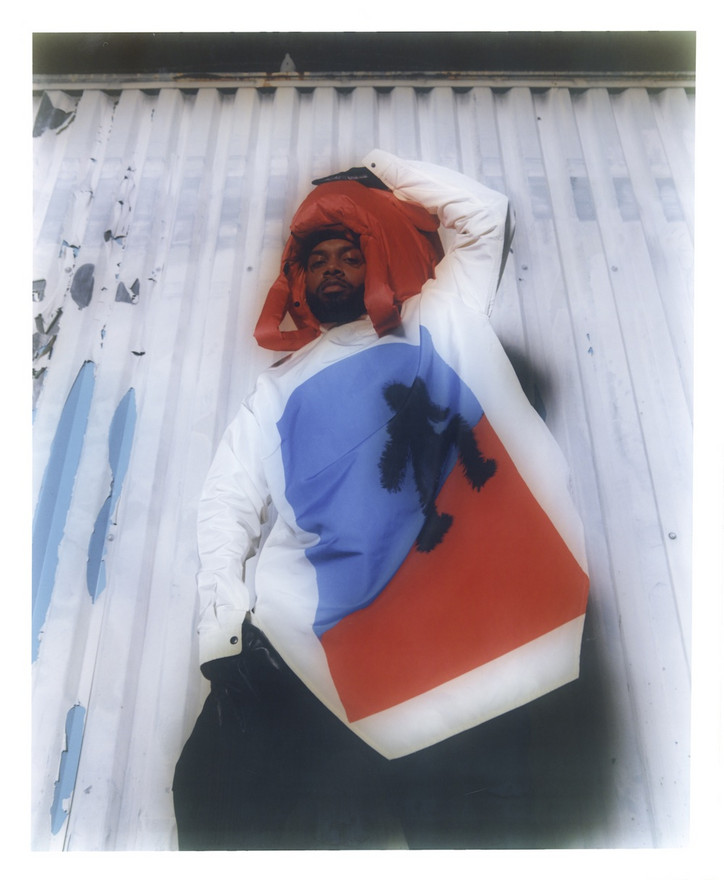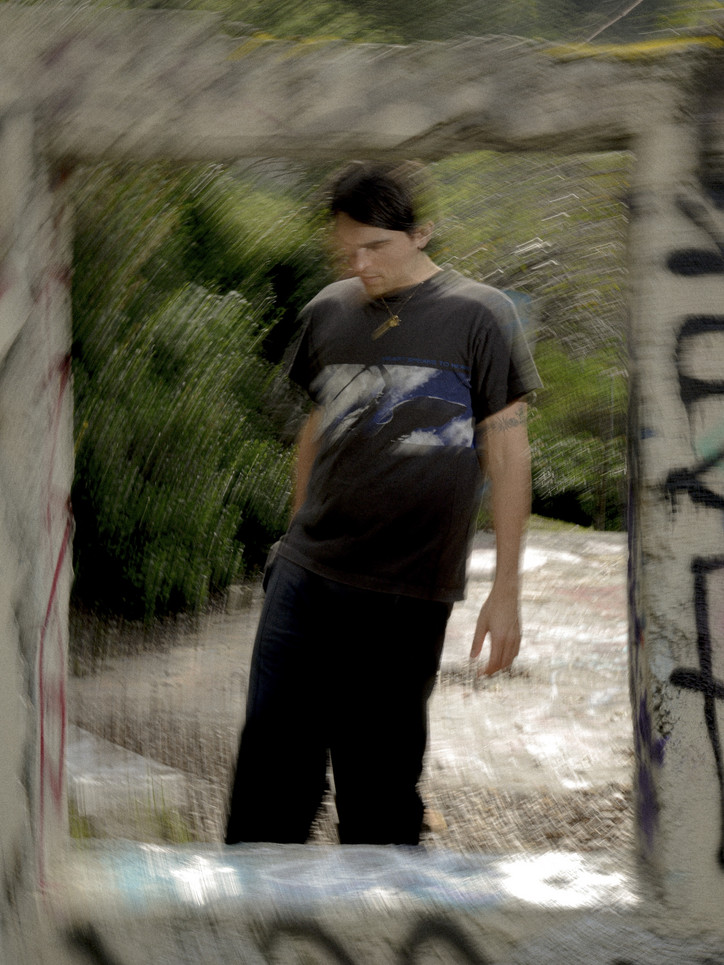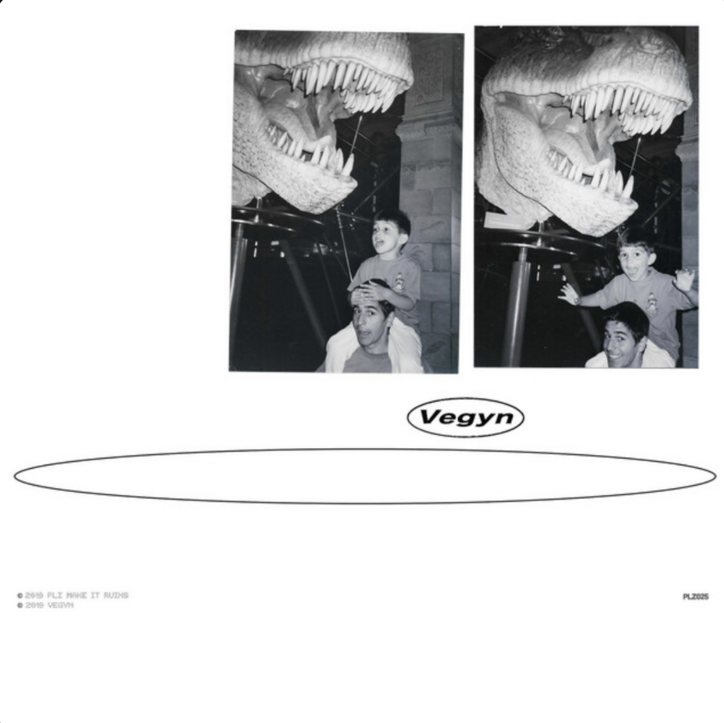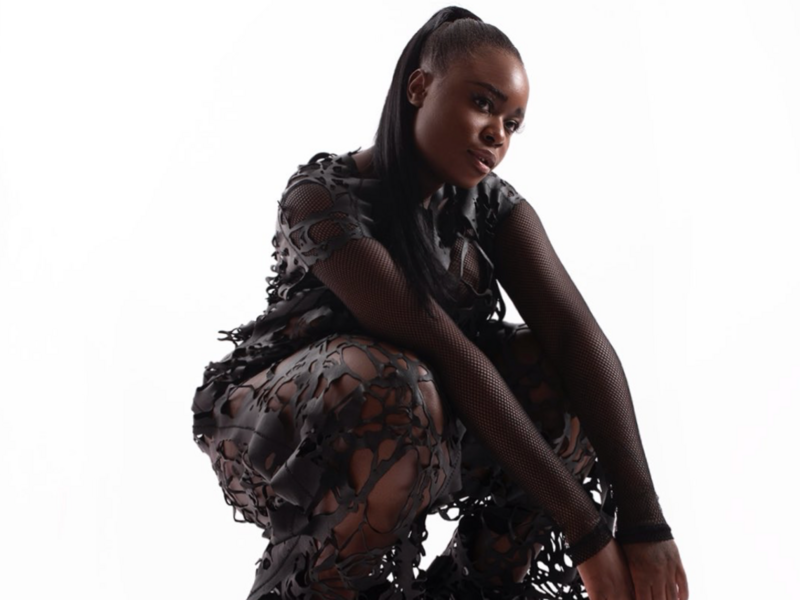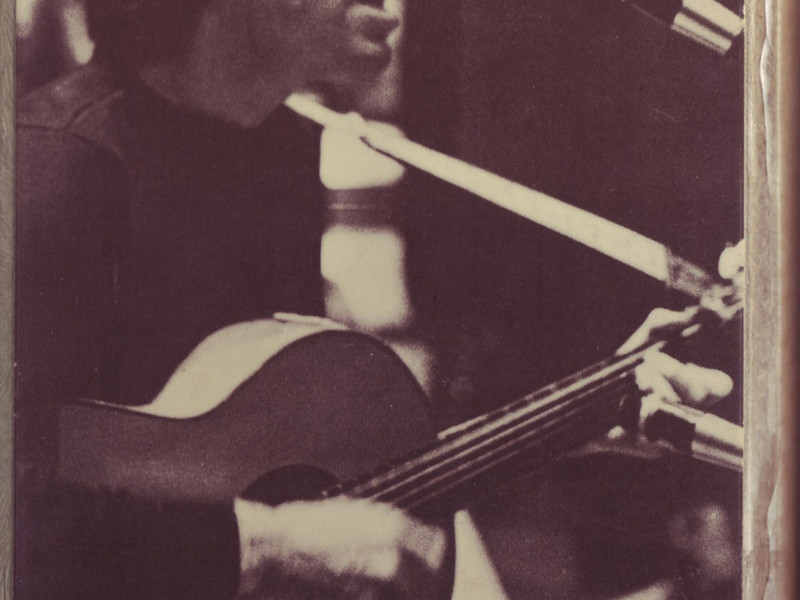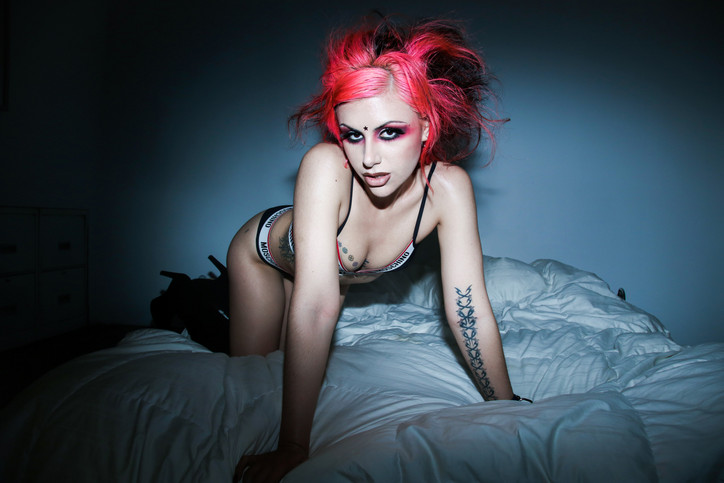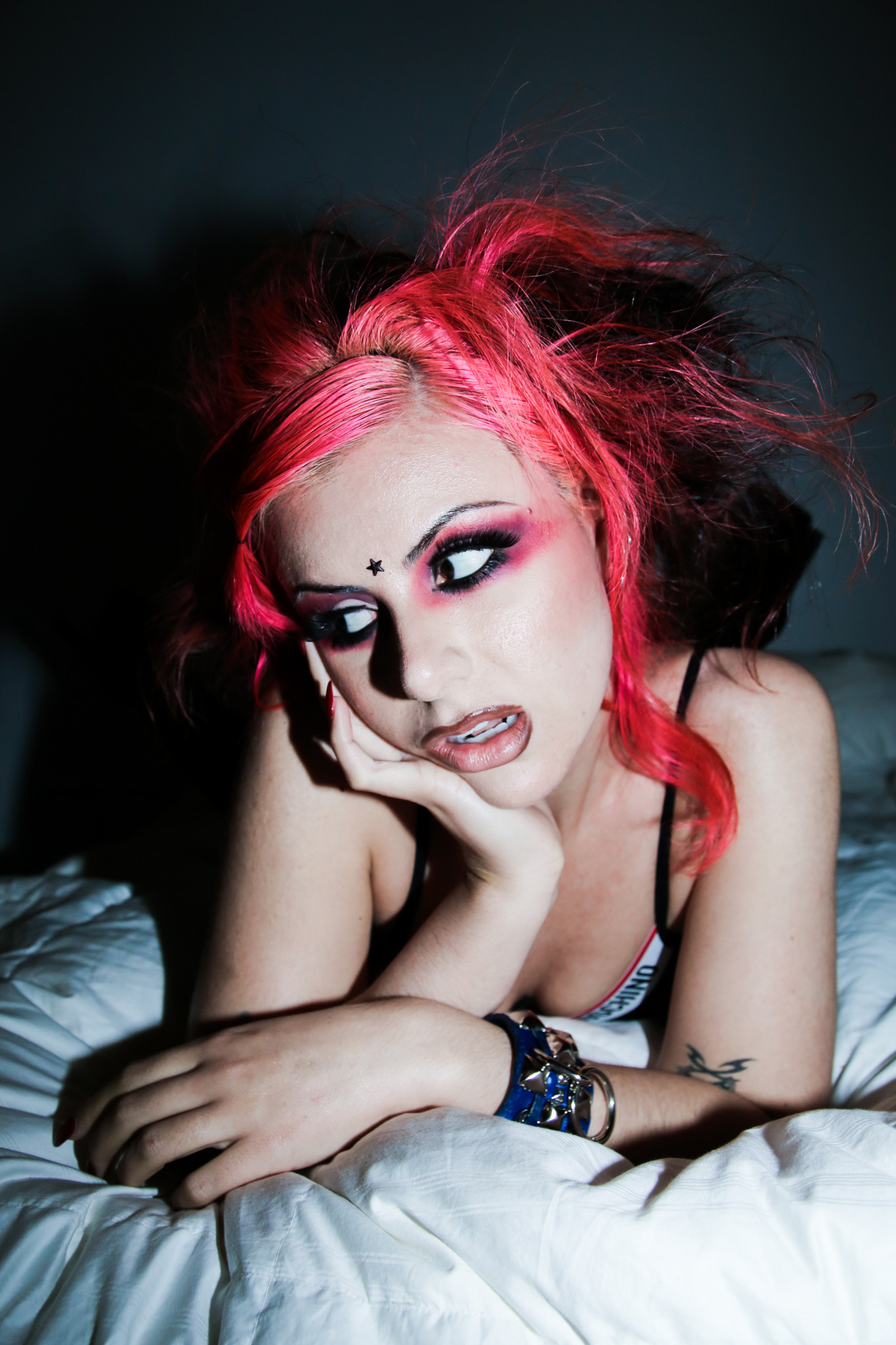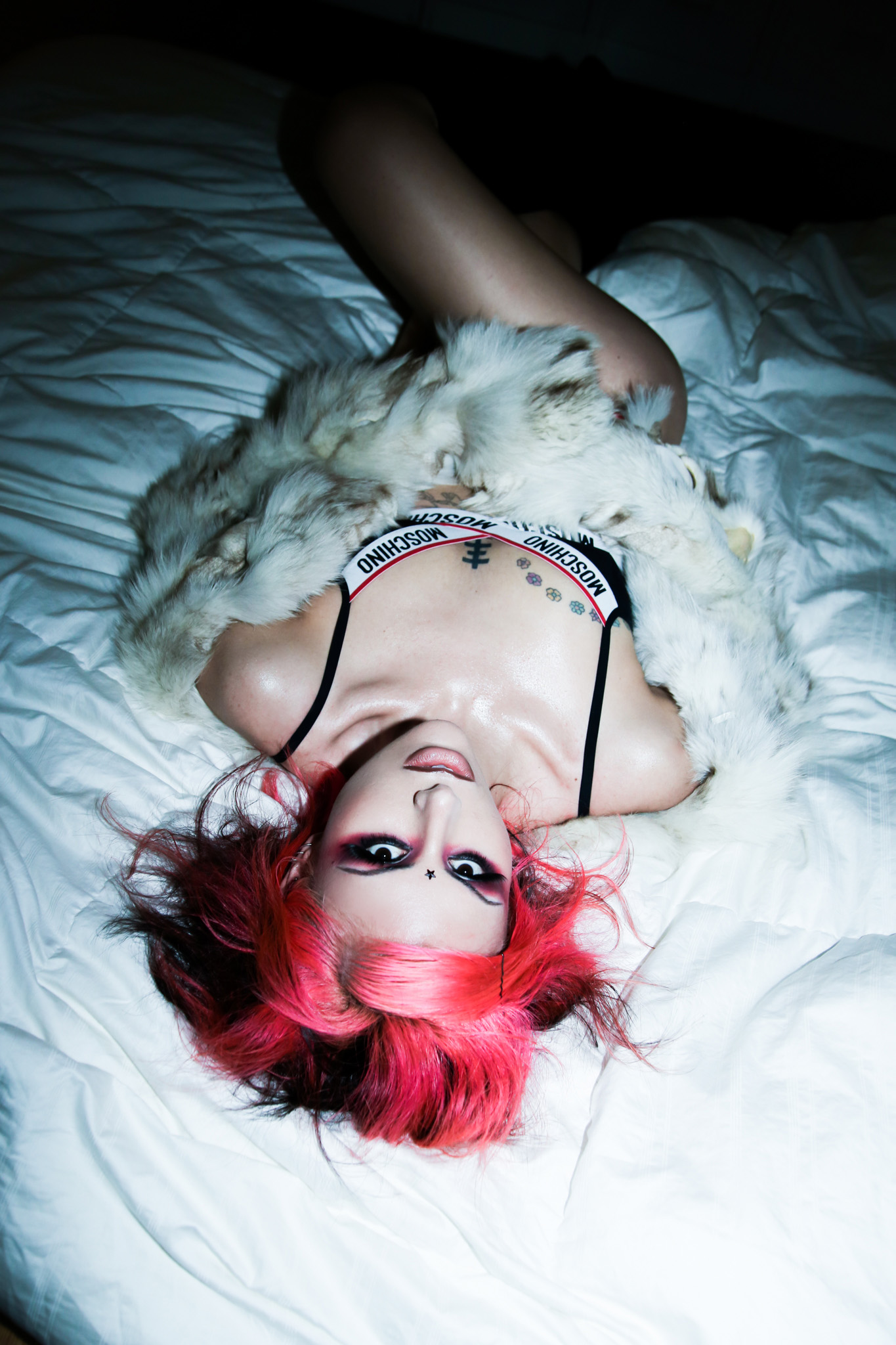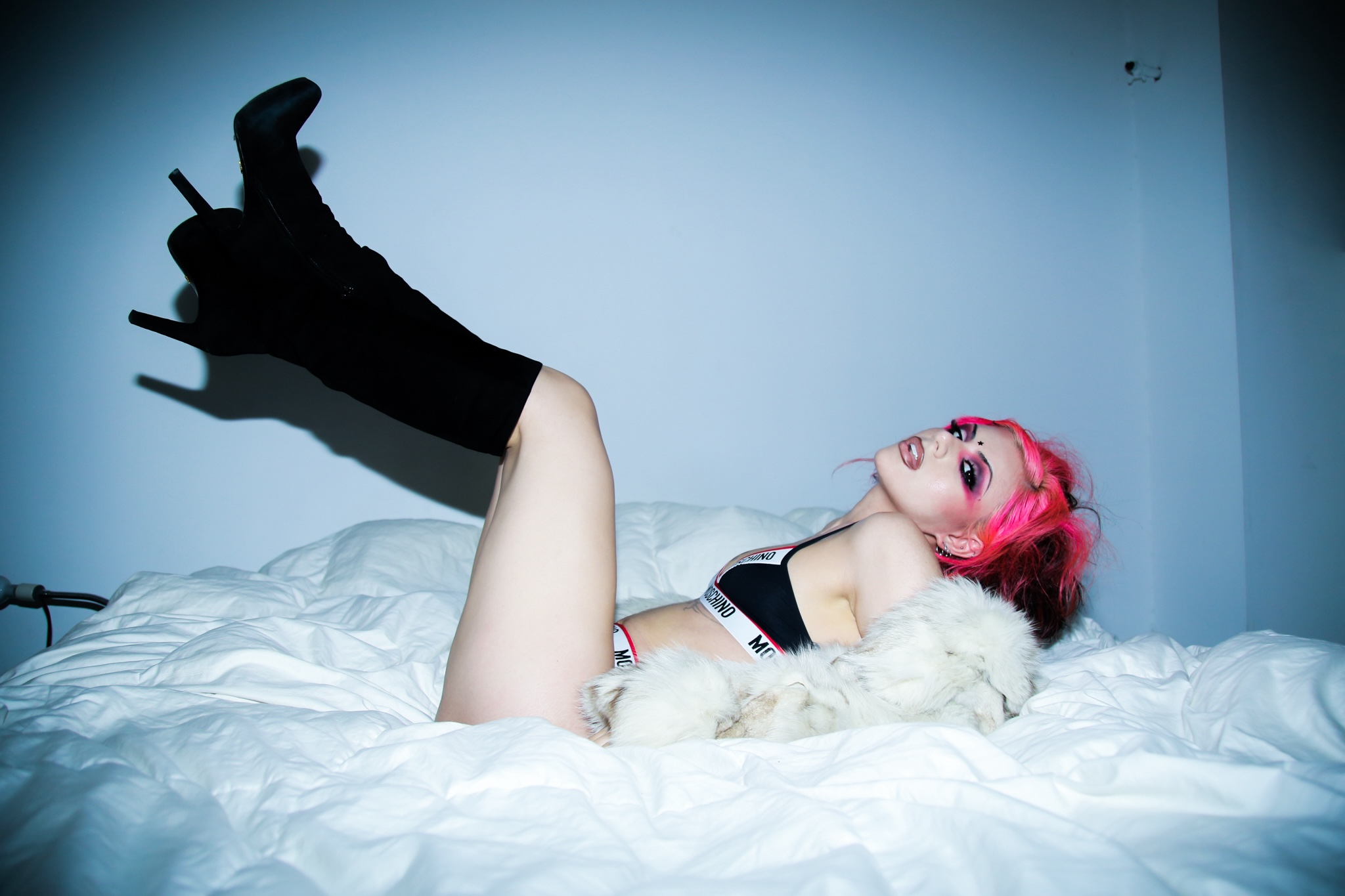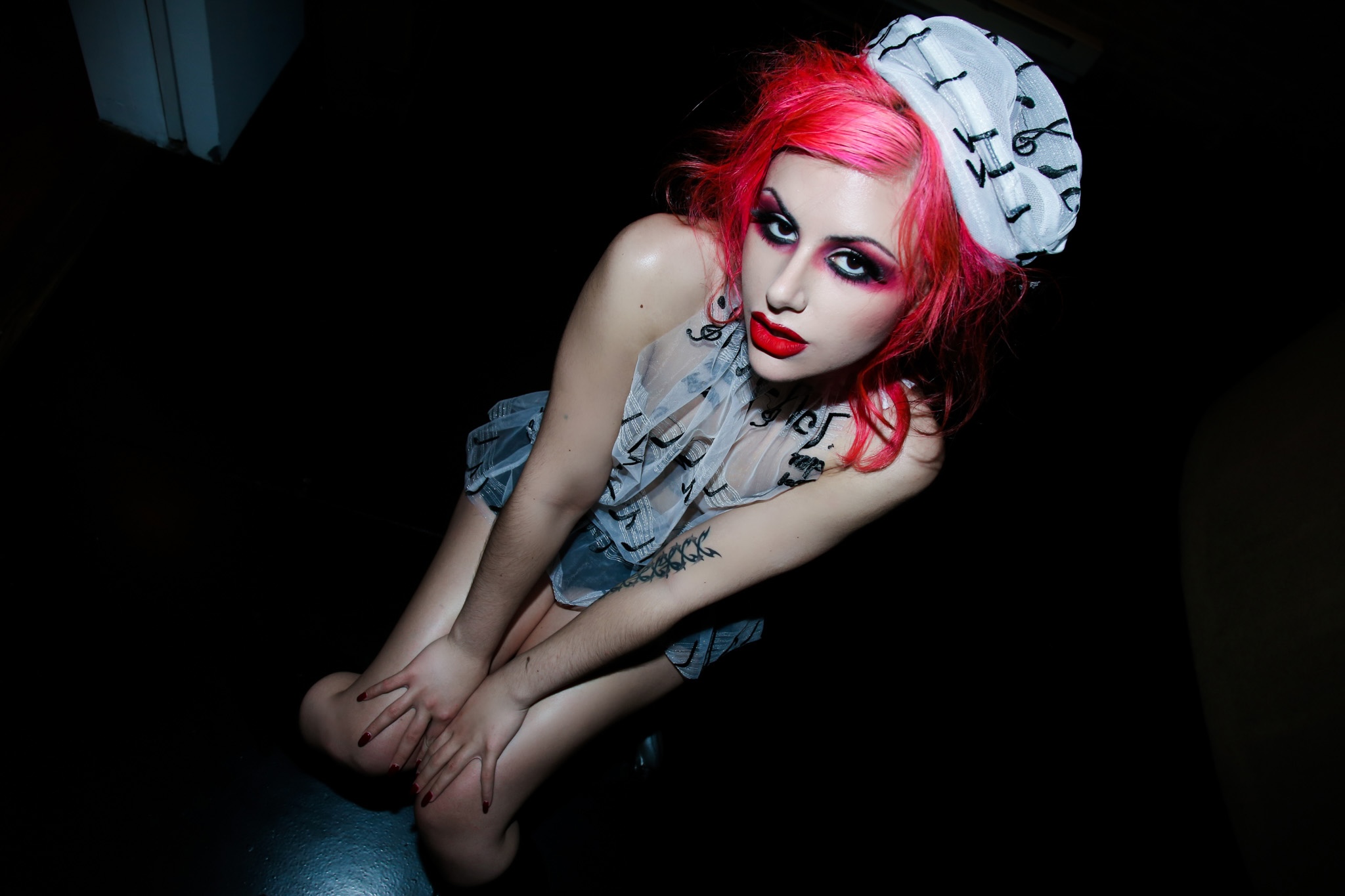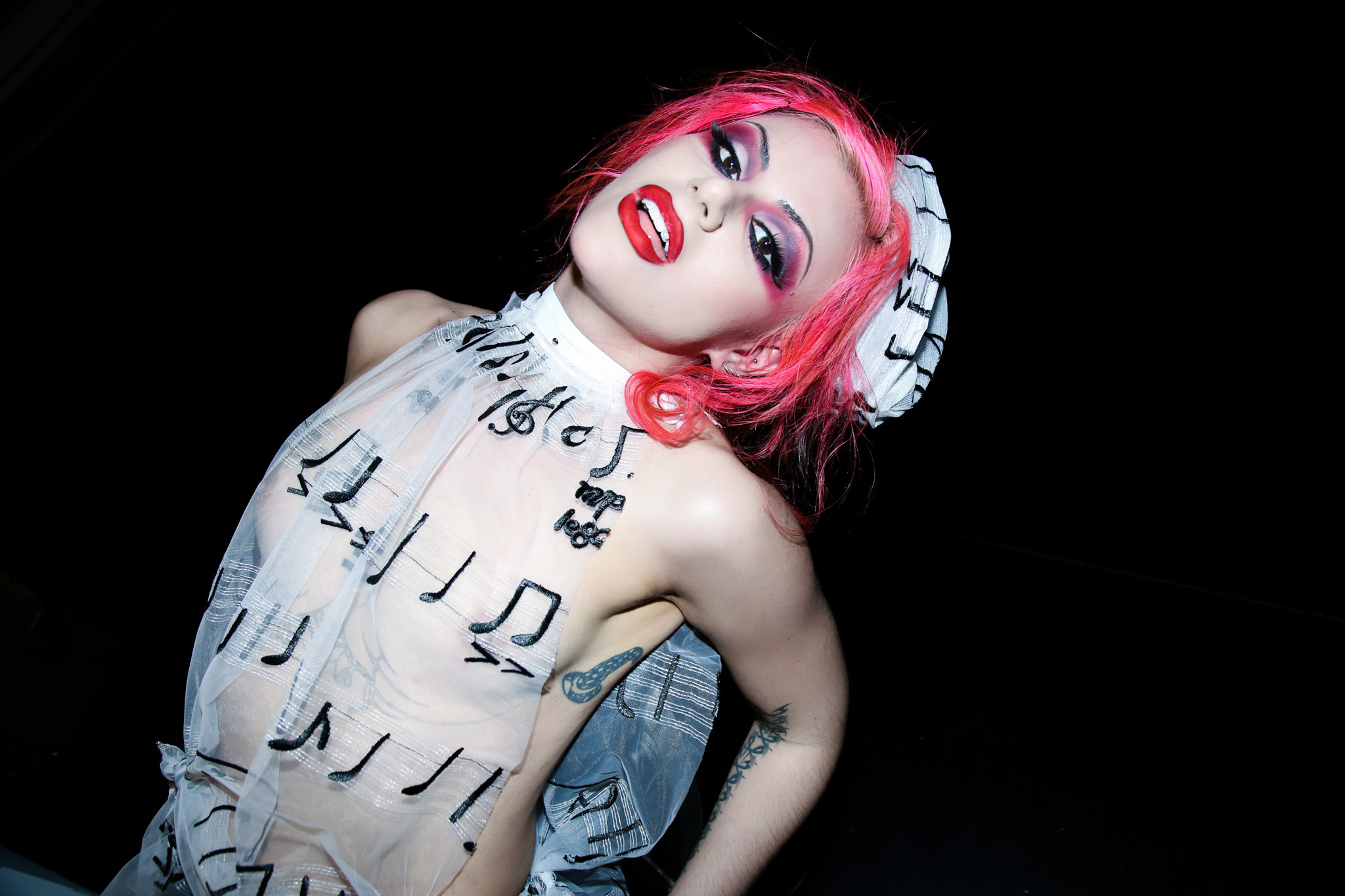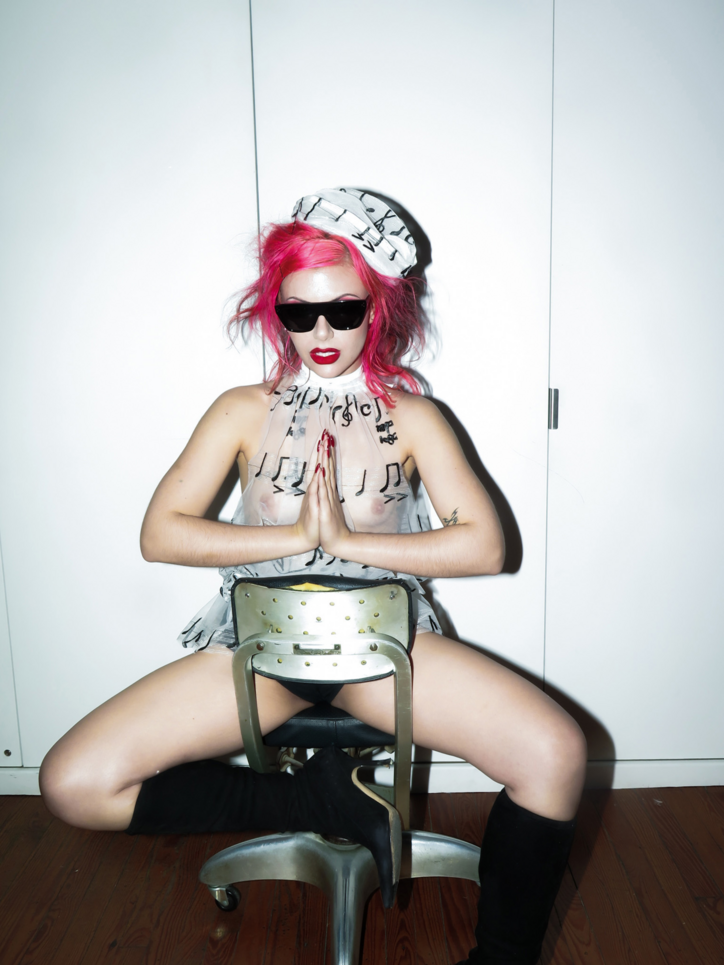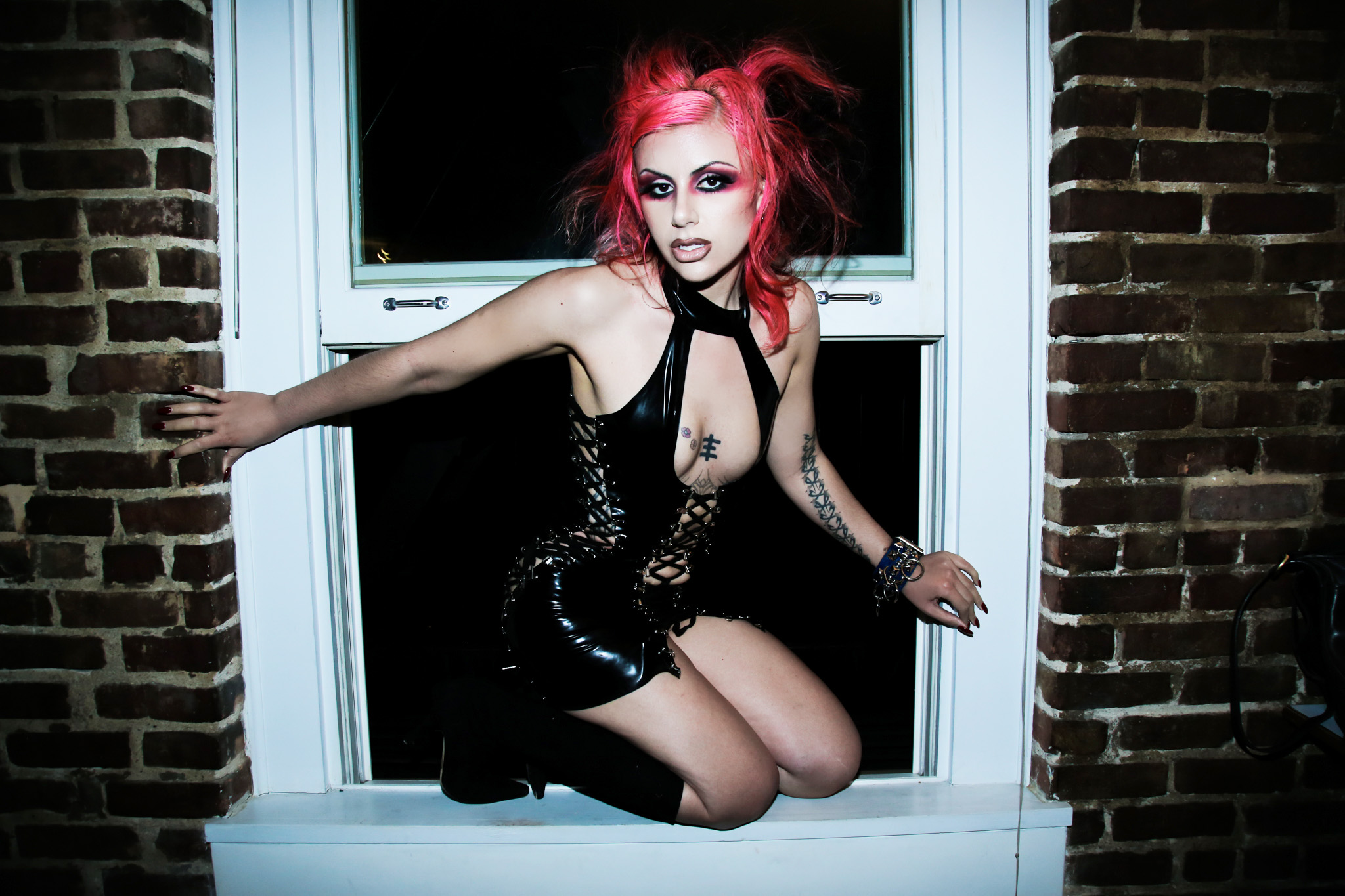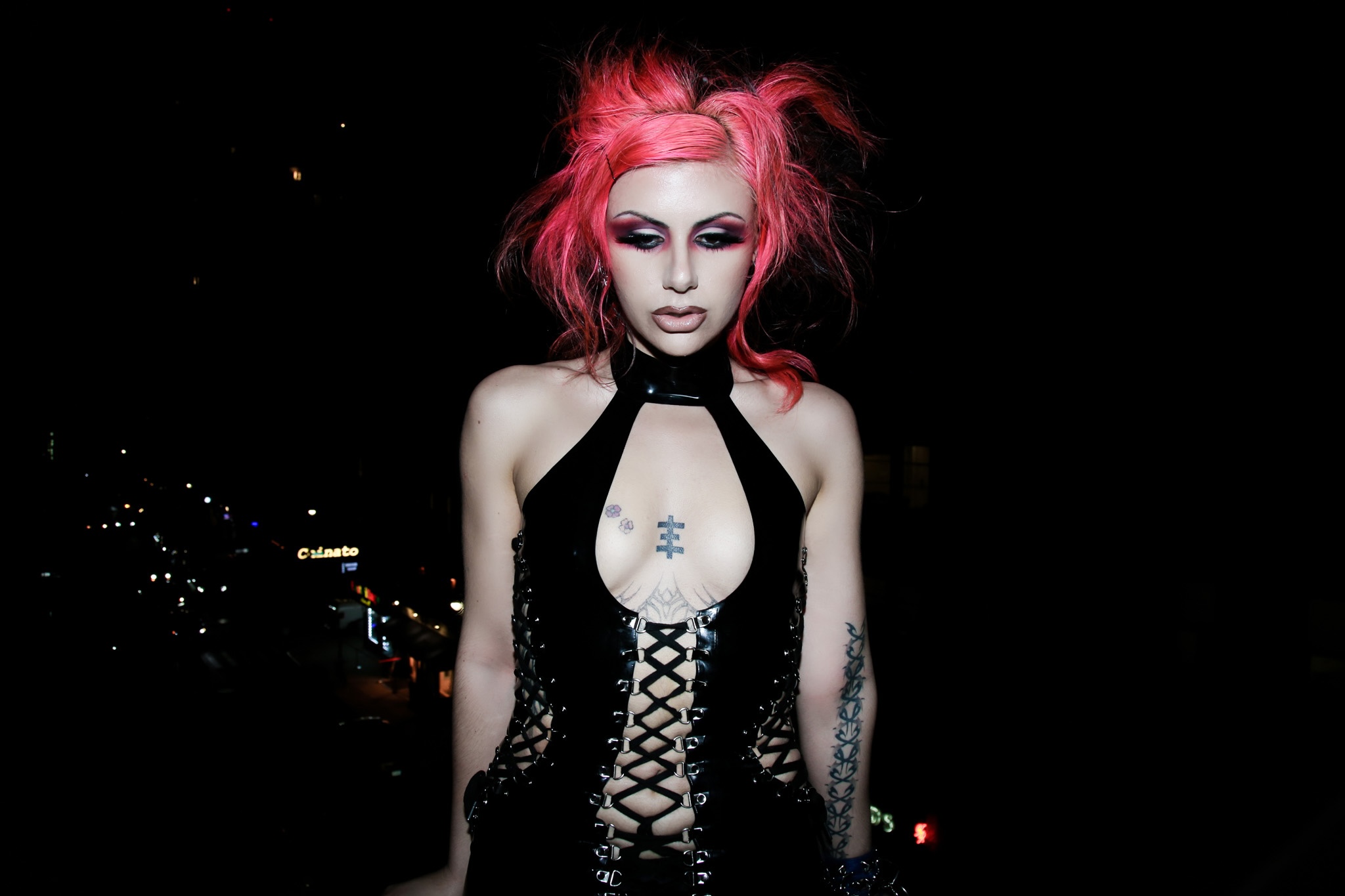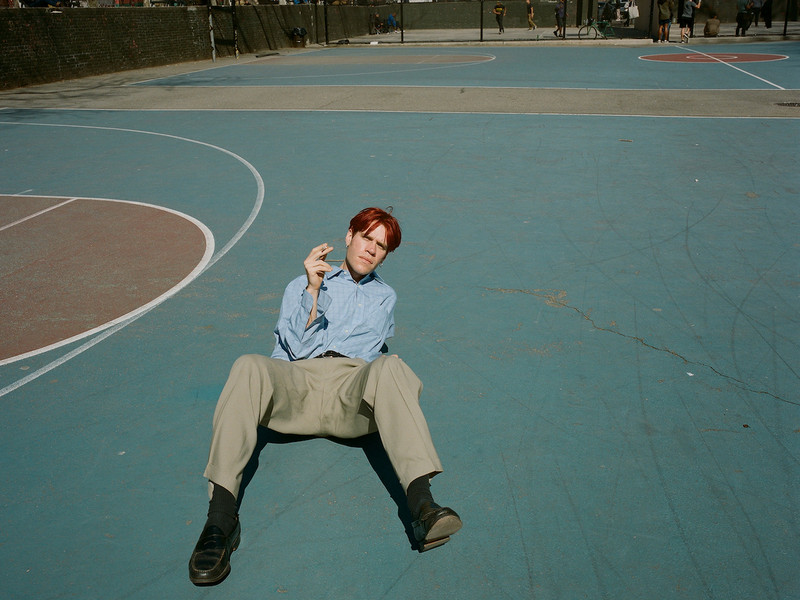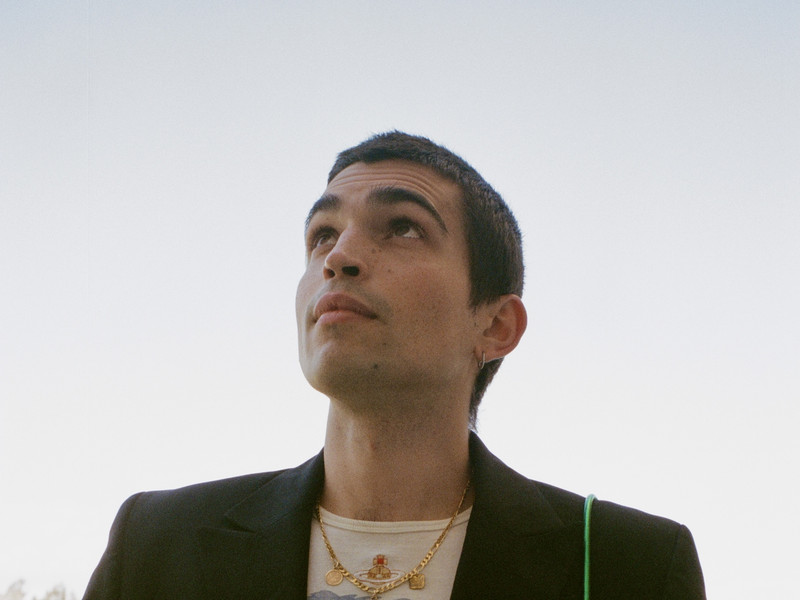Lucid Realities
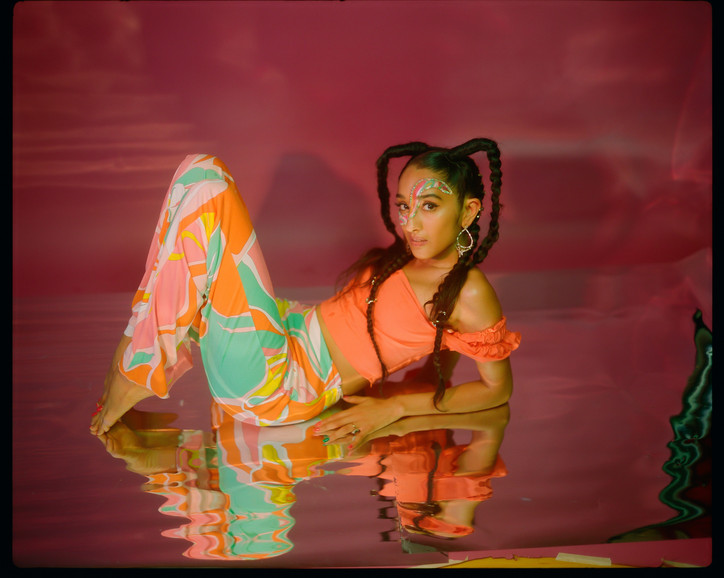
The 25-year-old singer/songwriter is a first-generation child of Sikh-practicing, North Indian parents. She grew up in both Queens, New York and Connecticut and started writing songs when she was about 13 years old. In 2017, Raveena released her debut EP, Shanti, after she graduated from NYU. She then quickly gained a following for her sweet voice and hard-hitting lyrics.
Maintaining full creative control over her art, Raveena intwertines her Indian heritage into her aesthetic and explores her personal identity within her music, even coming out to the world in her song “Temptation” from Shanti. But in her newest album, Lucid, she delves further inside herself. For Raveena, Lucid is just as healing to her as it is to her fans. And now she feels more sure of herself and her voice than ever before.
Read the interview with Raveena below.
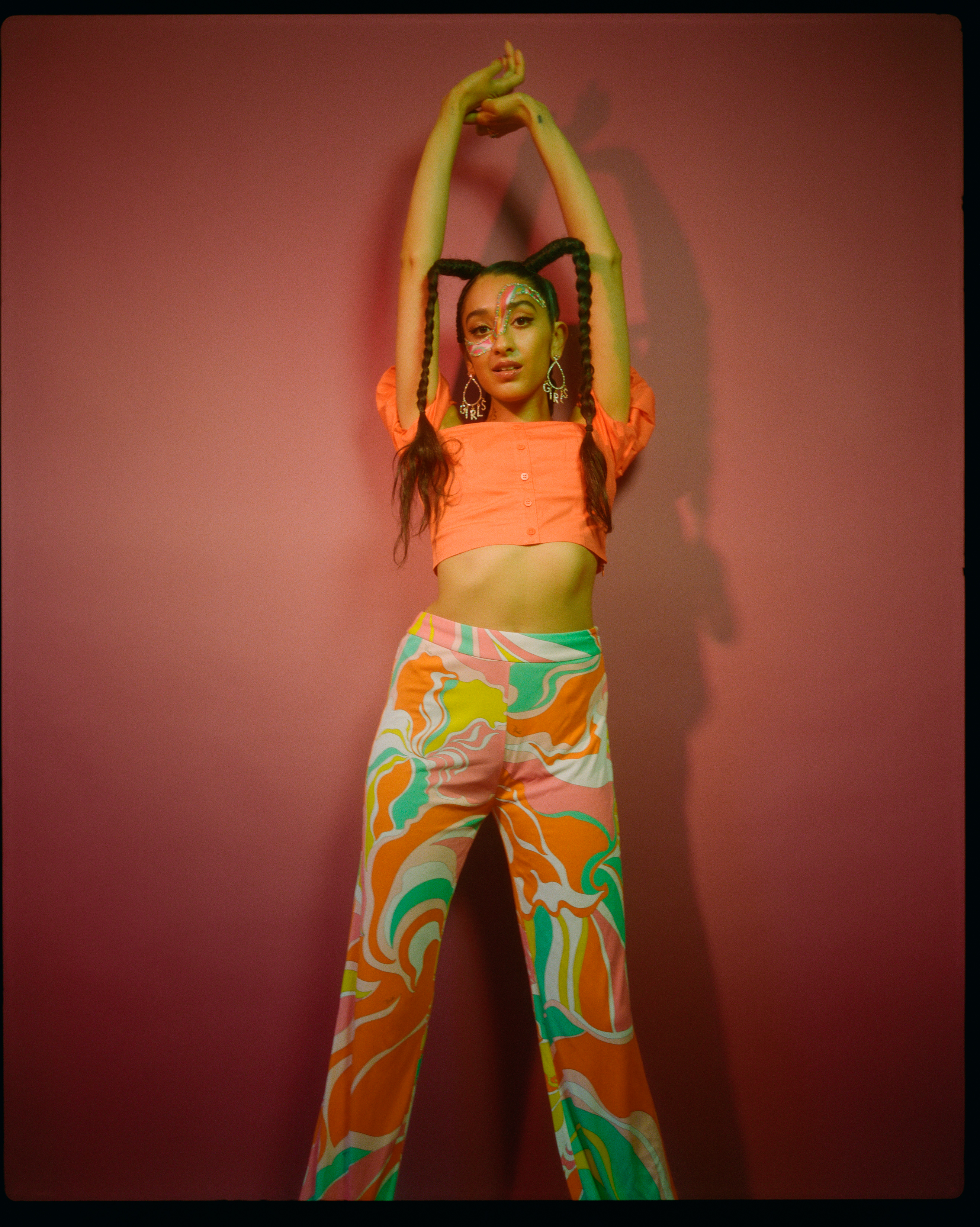
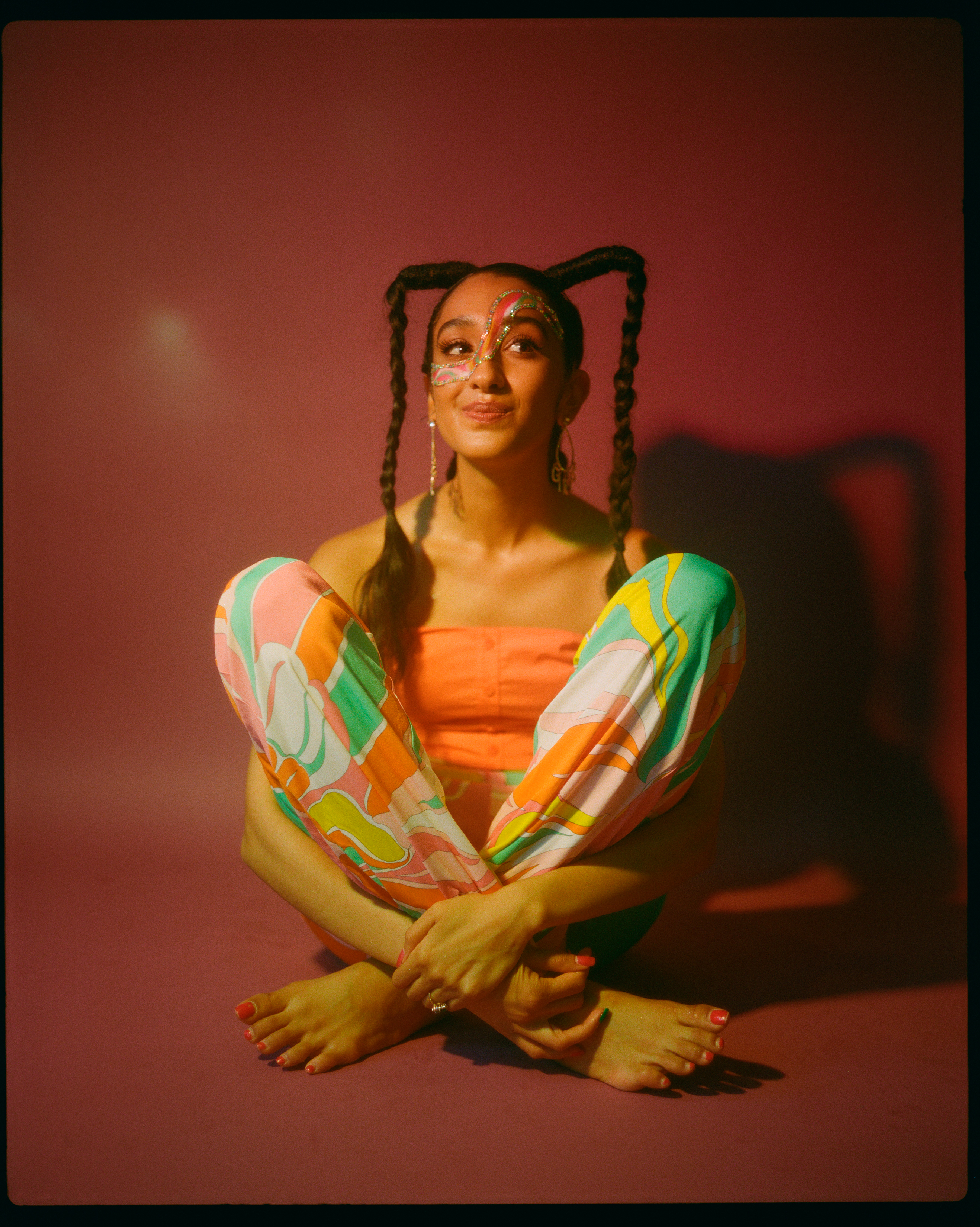
Tell me a bit about Lucid and why you decided to go with that title.
The word lucid means finding clarity after a period of confusion, and that’s the narrative of the album. It’s about the journey through me experiencing trauma and then finding joy. Lucid also fits the ethereal, psychedelic, and emotional sound of the album.
How has your musical style evolved?
I pushed myself to explore territories that were hard to visit and to find ways to put that into music, like talking about sexual assault and abuse. My singing voice got a bit deeper, more womanly, and my lyrical voice became stronger as well. My band and I also got more experimental and made a concept album, which we’ve never done before. It’s really cohesive and tells a story that you can play from start to finish. It was such a journey, and I feel like I found my voice on this album.
Who are some of the people that you frequently collaborate with, and who did you work with on Lucid?
Because Lucid tells such a personal story, I wanted to keep the team very small. So I only worked with Everett, my producer, and the two members of my band. Most of it was made in my bedroom, and there weren’t a lot of collaborators or people behind it—it was just us making what we felt like sounded beautiful and good to us.
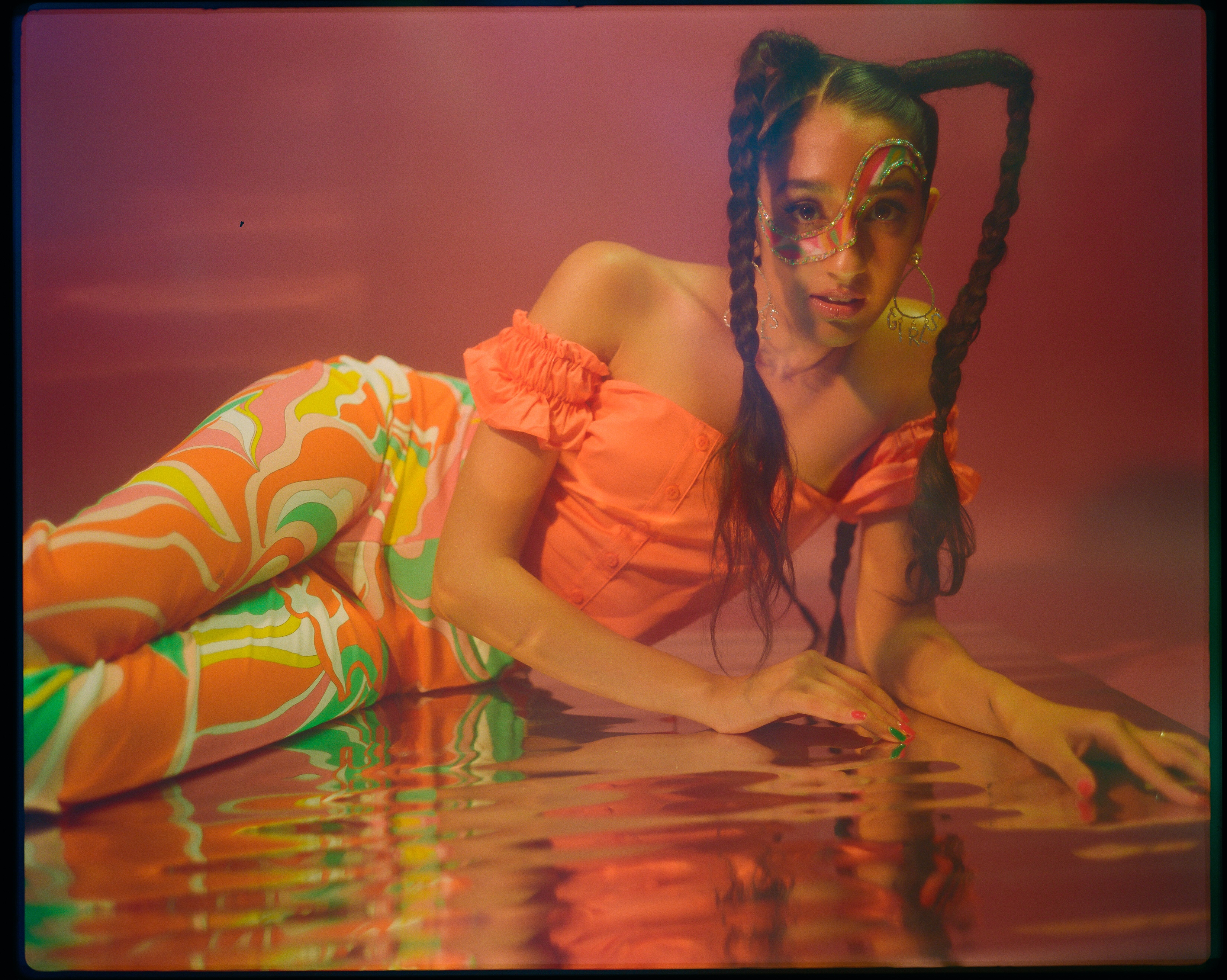
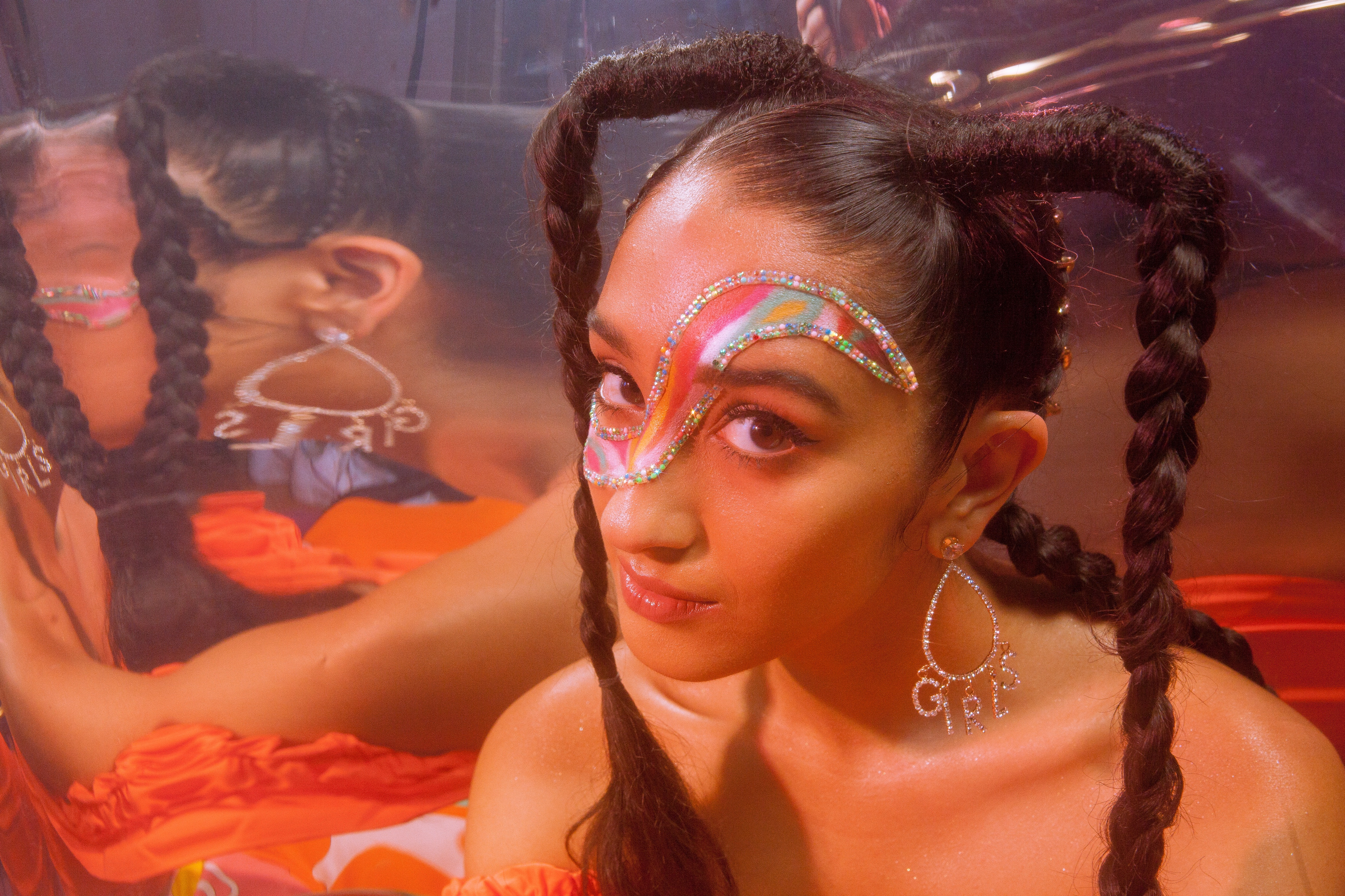
Tell me about the song “Mama” which talks about the relationship between you and your mother.
I feel like my family, my mom and grandma were both a part of the album’s story. They’ve just experienced so much in their lives and gone through a lot of trauma themselves. “Mama” is me imagining my mom coming to Queens after experiencing hardship. At only 25, she had gone through these crazy experiences back home and lost people in her life. I live in Queens now, and it’s kind of crazy walking through the streets and thinking of my parents first coming there and their first experiences. The song is about me holding a space of love for her, but also trying to better understand her.
Your mom came to the U.S. when she was your age?
She was a little younger. I think she was 21 or 22.
South Asian artists often have difficulty within media industries, because they’re forced to fit into a limiting, often one-dimensional, narrative. Has maintaining creative control of your work helped you to combat this? And what have been some of the challenges with doing that?
I think the hardest part about it is that the people at the top who make decisions are often straight, white men. Sometimes they have trouble seeing potential in South Asian artists and giving them the same opportunities because there just aren’t many contemporary examples of South Asian artists who have made it. So it’s very hard for them to see that we can appeal to a large audience. But I think that it is very possible for that to happen. It will just take a lot of time.
I think music that’s made from love and that’s made from pure intention will always stand out at the end of the day. Nowadays, people care less about what the person looks like and care more about the music they’re making.
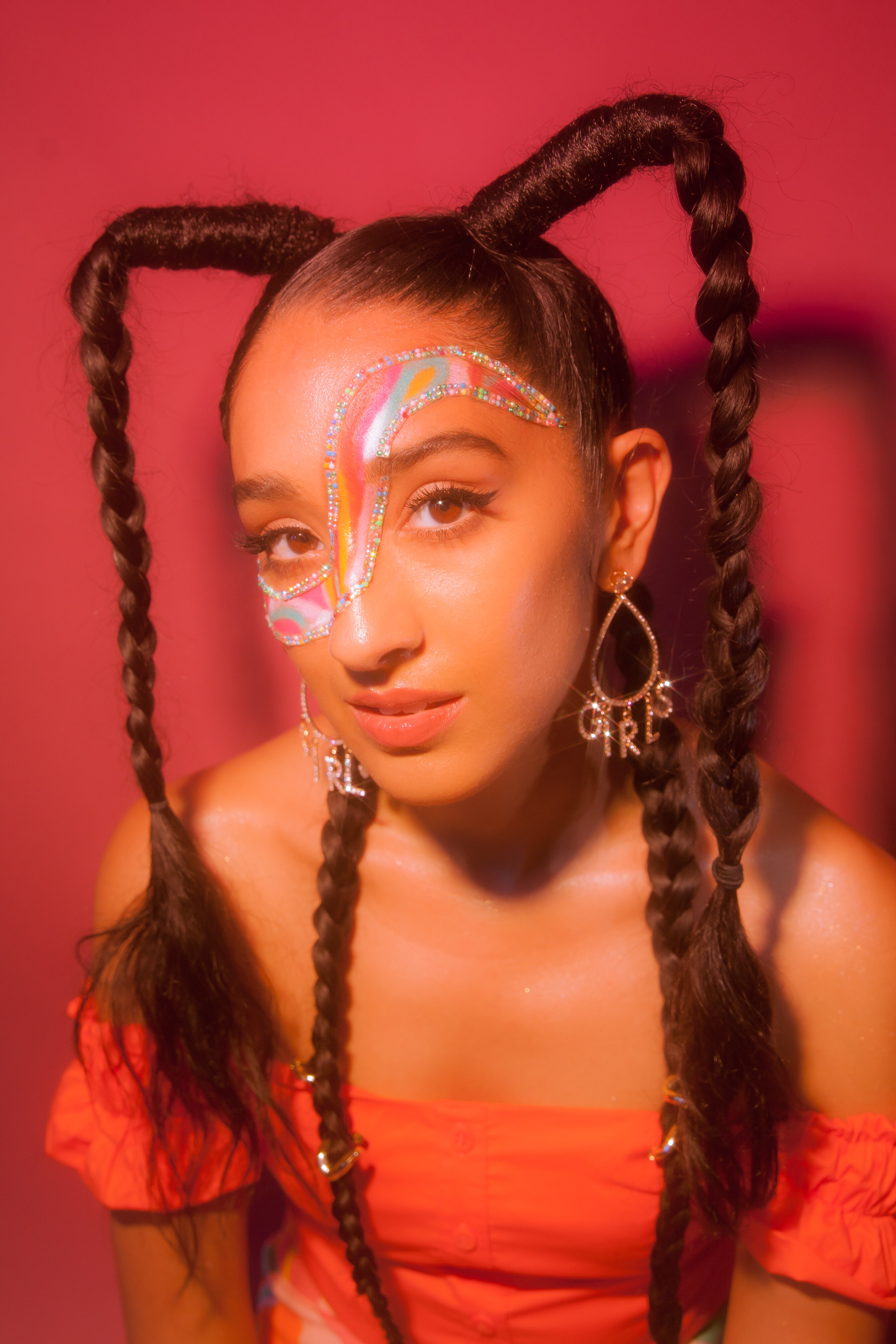
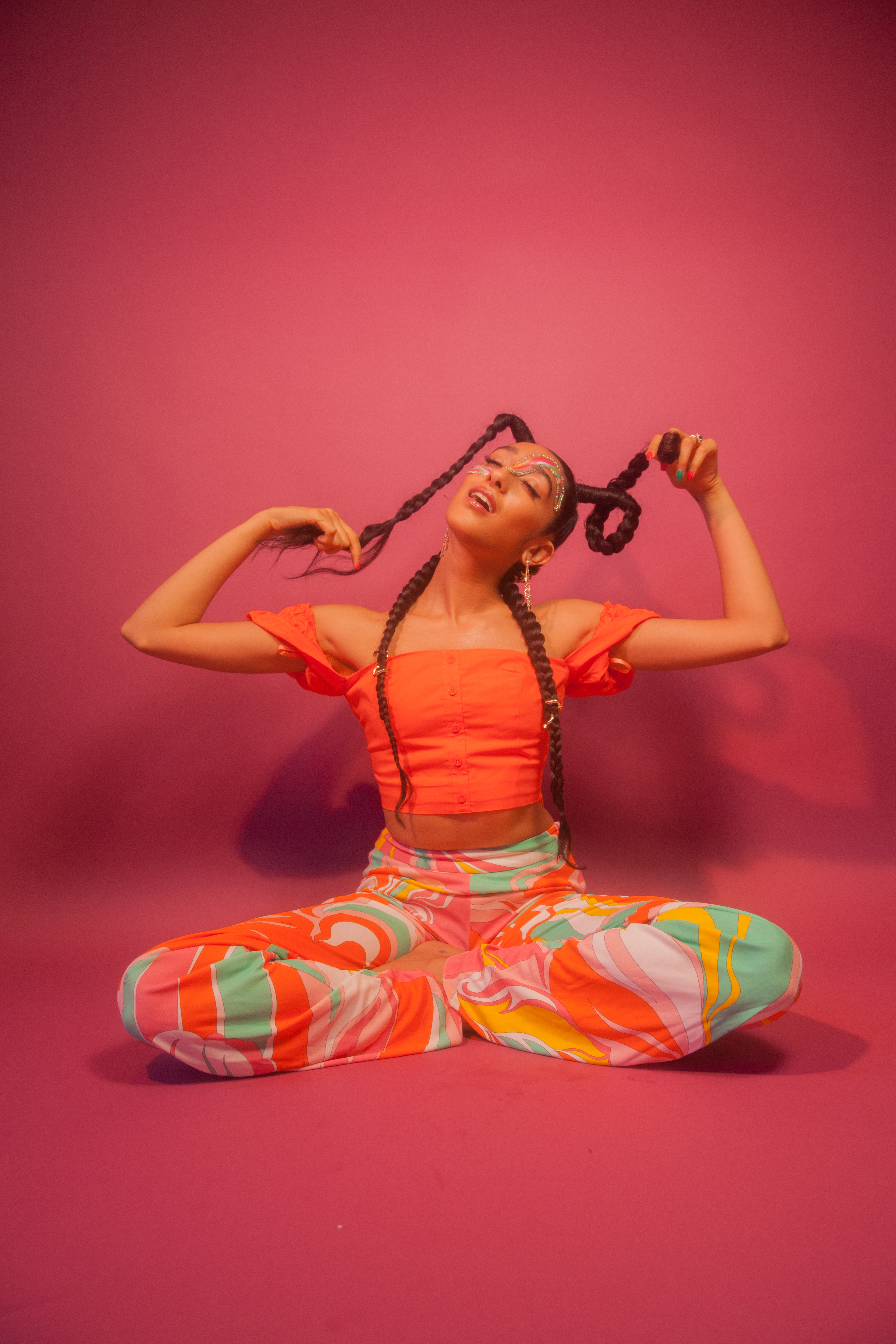
Do you think that, because of SoundCloud and other social media and music sharing platforms, there is less gatekeeping within the music industry?
I think that the gatekeepers still exist; they just exist in different forms. Ultimately when you make music and make a living off of it, it’s tied to capitalism and this really archaic system. But now with social media you have the power to build your own following and have that community follow and share your art. And if you keep putting out good content, then I don’t see why you can’t carve out your own little niche. It’s about persistence and staying true to yourself. I think the gatekeepers are always a couple years late anyways, so they’ll just catch up to it in time.
In the song “Stronger,” you sing, ‘I was naive to think a man could be stronger than me.’ Tell me a bit about that song and what it means.
"Stronger" and "Saltwater" are both about overcoming sexual assault and abuse. When I was going through those experiences, I was in such a meager state of mind. But once I started to remove those energies and forces out of my life and started to really focus on healing myself, I realized what a strong woman I am.
What sounds were inspiring you? Was there any music you were listening to while making this album?
We were listening to a lot of soul music. We listened to Ashanti, Stevie Wonder, Minnie Riperton, Erykah Badu, Sade, a lot of the greats. We also listened to Outkast and Bjork. We definitely like to draw from a lot of different styles of music. We get inspired by whatever moves us and has a lot of feeling.
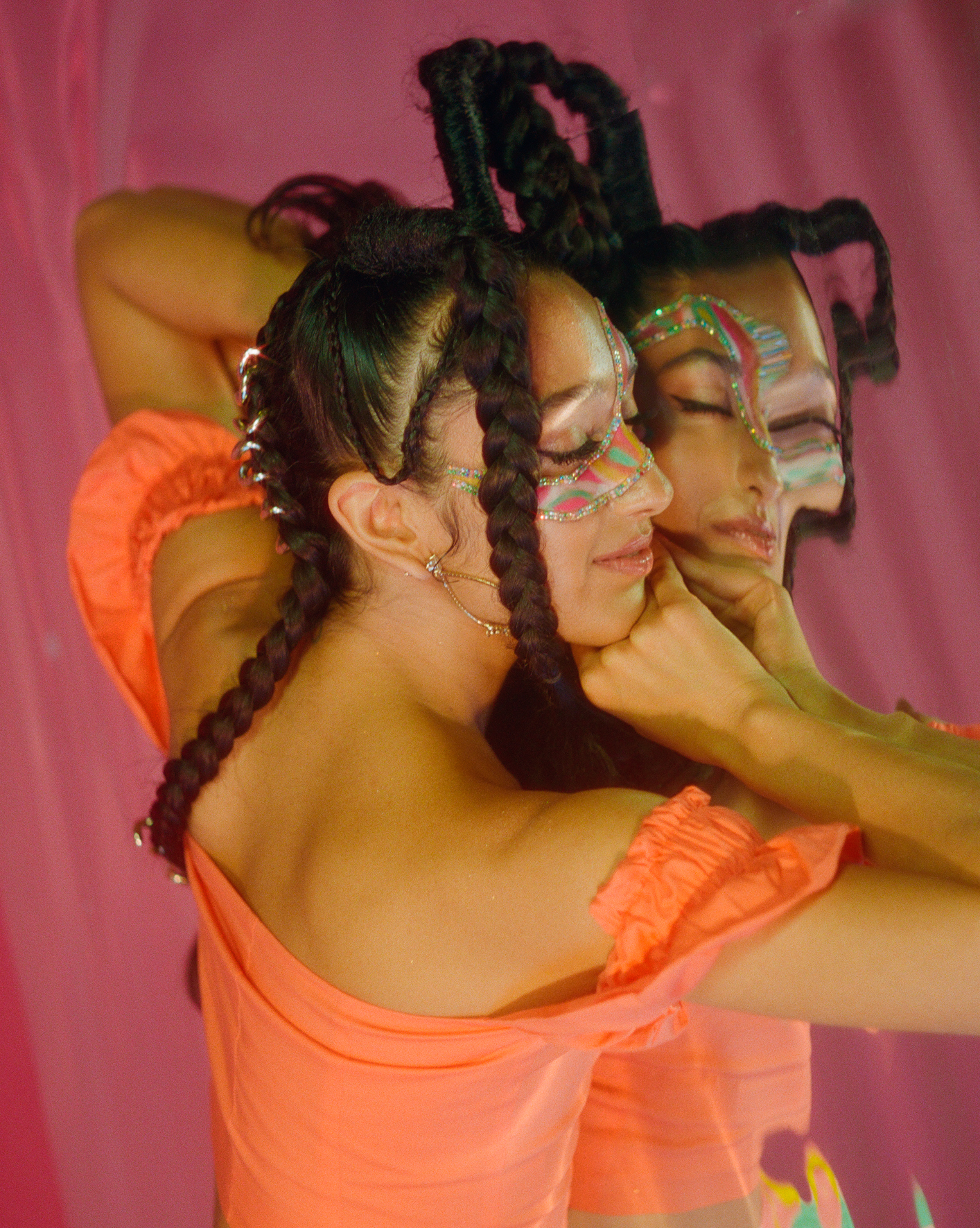

Some of your inspiration also comes from film. What is your connection to film and what films have influenced you?
I think film is the all-powerful and almighty medium, because it combines visuals, music and storytelling. There’s nothing that hits you more intensely than a good film. Music is a spiritual force, and it’s really powerful in that way, but film is where it all comes together. I’ve been really inspired by movies about space lately, like Interstellar and Gravity. I love space movies, even old sci-fi space movies like Barbarella. I also love Hayao Miyazaki and David Lynch, and I’m really inspired by Bollywood films.
When a movie is really artfully done, I’m so in awe when the script has such beautiful words and beautiful music along with it. I love diving deeper into films so that I can hopefully recreate the visuals and the feeling in music videos and long-form projects in the future.
Is there a particular decade that inspires you and why?
Definitely the ‘70s. That era really resonates with me. I’m really interested in psychedelics and the hippie movement, and people took a lot of risks in the ‘70s. It feels like the most fun, surreal and colorful, which are all of my favorite elements.
I can definitely see ‘70s in your style and your work—it seems very you.
Yeah, I love it!

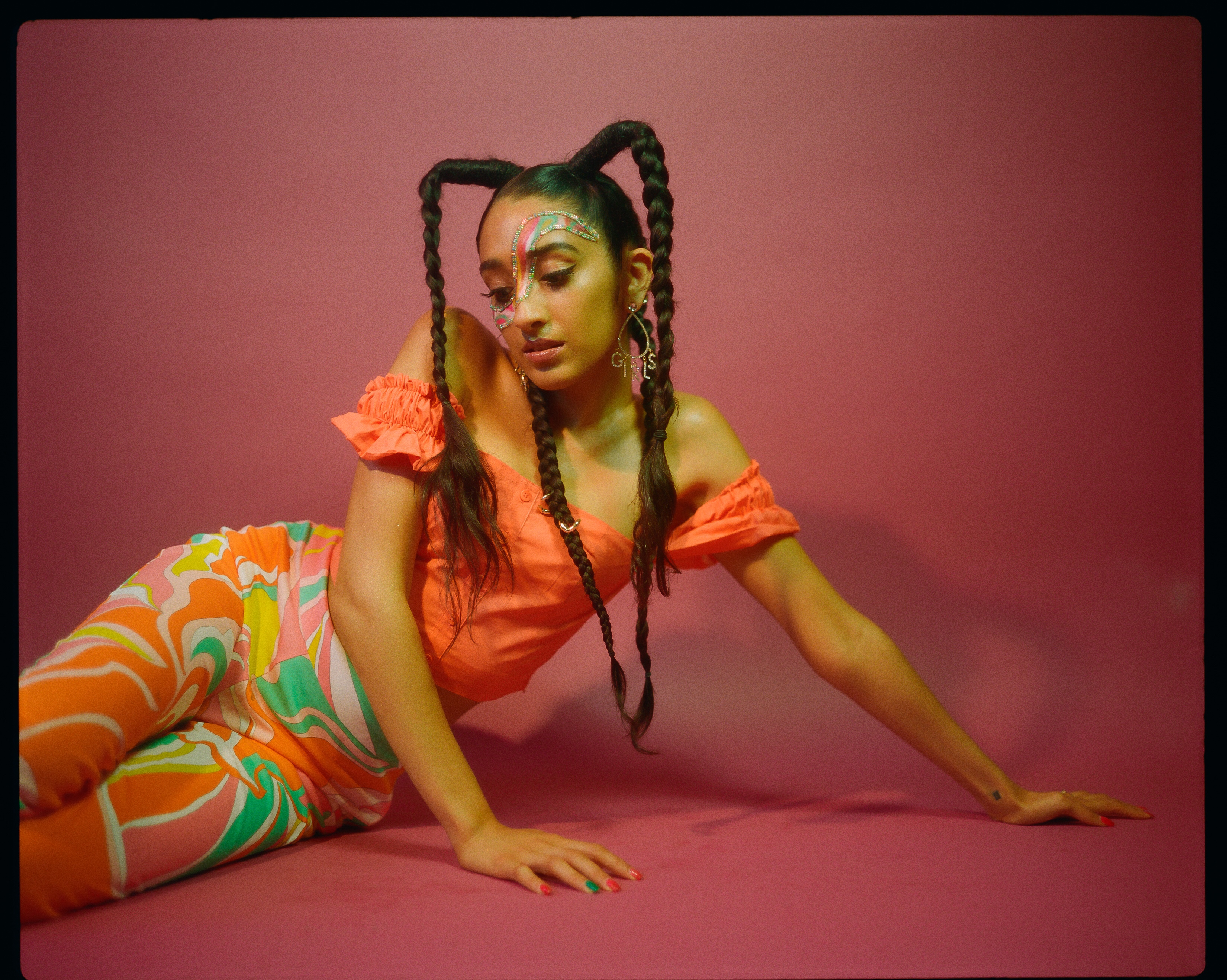
Talk a bit about your clothing style.
I’ve been wearing a lot of Pucci for this album cycle. I even wore it in the office shoot. There’s a colorful, ‘70s feeling to it. I love any designer that really experiments with color and has a light-hearted approach to clothes. I also like looking through old ‘70s clothes and finding whatever I can. You’ll never see me in black, grey or navy. I usually wear all of the colors of the rainbow.
Describe your perfect day.
It would probably be in Hawaii. We would go on a bike ride and go on a little hike. Then see a waterfall and get sushi. And then come home and write a really good song. I think that’s like the perfect day. Hopefully we’d catch a sunset too.
